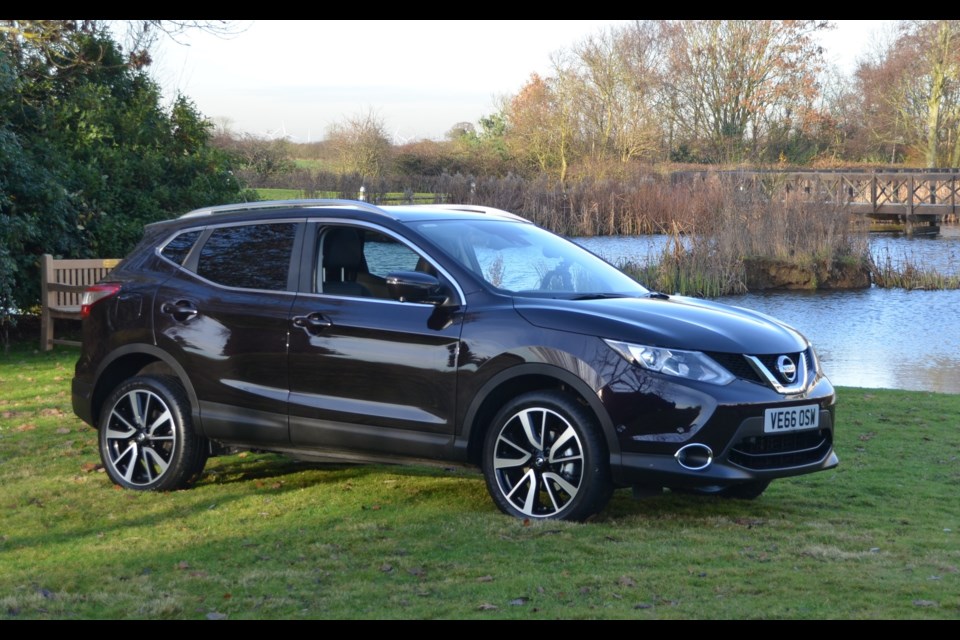I know what you’re thinking: that’s nothing to get worked up about. More than 2.5 million Europeans have already driven it and plenty of Canadians vacationing on the Old Continent have rented a Qashqai. However, this was the first time we drove a Qashqai made to North American specifications. Well, almost.
In December, Nissan invited a small handful of Canadian journalists to England to test drive the Qashqai in the countryside surrounding Cranfield, where the Nissan Technical Center Europe is located. With no North-American version available (the English Qashqai has a different engine), they let us try out a Russian—yes, Russian— Qashqai.
This 2016 model was equipped with the same 2.0-litre, direct-injected engine that we’ll have in Canada, although, once it’s adapted to North-American standards, it should develop three less horsepower—141 in Canada instead of 144 on the model we tested. The gearbox in our demo vehicle was Nissan’s beloved Xtronic automatic CVT. The all-wheel-drive system it controlled is the same as the one that will be offered in Canada, according to Nissan. The basic versions will feature front-wheel drive.
Driving on the wrong side of the road
Although driving on the other side of a narrow, winding road requires concentration, I still noticed that the Qashqai is more dynamic than the Rogue, but less so than the JUKE. Acceleration isn’t too noisy, but it’s hardly music to your ears. Torque, rated at 147 lb.-ft., isn’t very high for flat-out acceleration, meaning you’ll have to really lean on the gas pedal.
While the steering is quite lively, feedback is minimal, which is still better than in the Rogue. Whether Russian or Canadian, this CVT was just what we’ve come to expect from Nissan: it ramps up the decibel level during acceleration and creates an unpleasant elastic effect that you end up getting used to over time.
In Europe, the basic trims have a semi-independent rear suspension while the other variants get an independent setup. In Canada, Nissan will just offer the independent suspension, so that’s the one we tested. I was only able to open up the Qashqai a little, but it holds the road more confidently than the Rogue and offers a sportier feel. Note that I said “sportier feel” and not sportiness. The Qashqai is actually lighter and smaller than the Rogue and seemed more agile and more fun to drive, but if you’re looking for dynamic Nissan SUV, opt for the JUKE.
Life in the back
The Qashqai’s back seats are a tad snug, especially when it comes to legroom. There are three seatbelts, but the bench can only accommodate two people comfortably. I sat there for a few kilometres with two buddies, and I can confirm that putting three people in the back seat is not something you want to try.
The trunk is reasonably large, but when the seatbacks are lowered the floor isn’t flat. No problem! You can raise the floor using the optional Divide-N-Hide system.Visibility isn’t a concern, at least no more so than in most SUVs currently on the market.
The Qashqai, made in Kyushu Japan will arrive in Canadian dealerships in May or June 2017. A media launch will undoubtedly take place before then. Stay tuned to see if our impressions after such a short (and unsettling) test drive hold true for the North-American version.



